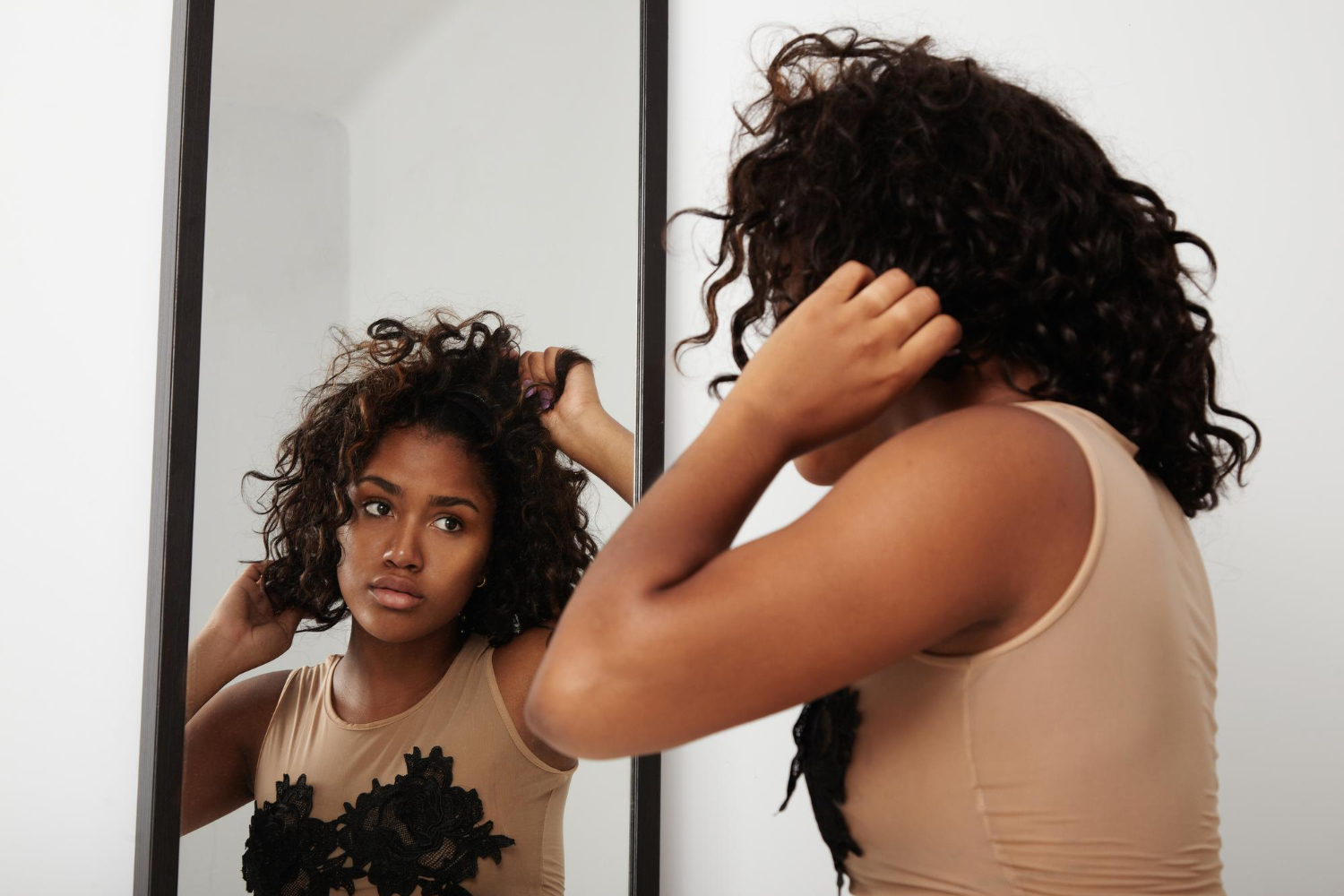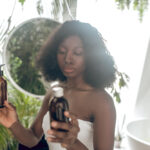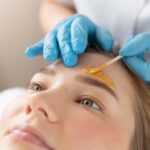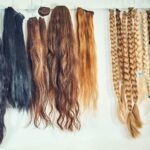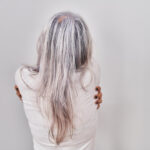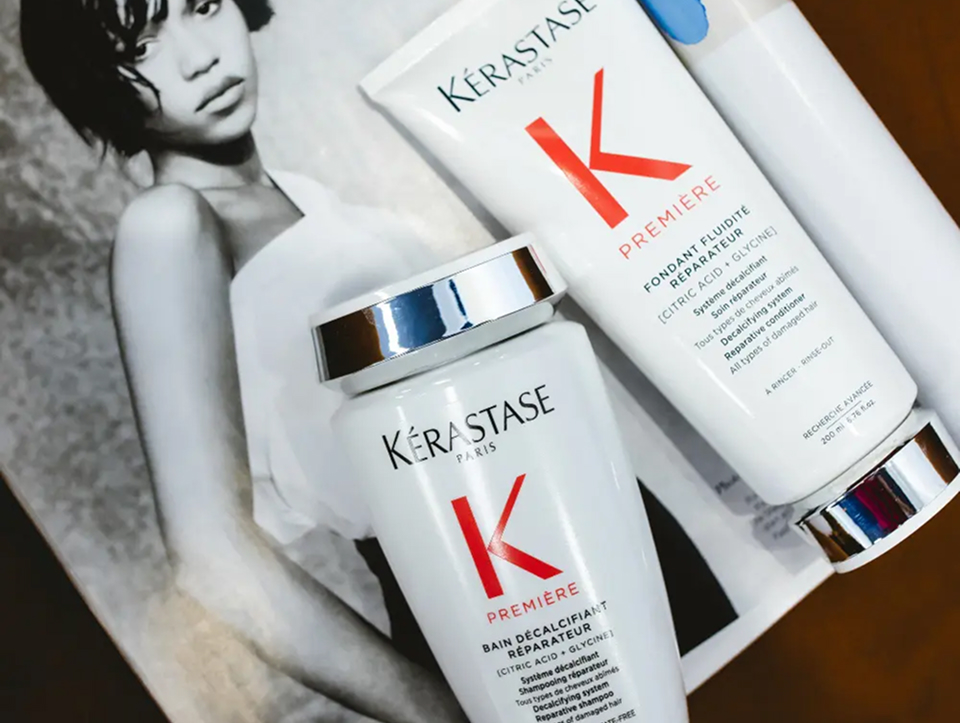When it comes to hair care, everyone seems to have advice, from friends, family, or the endless internet scroll. But what really works for your hair?
At Haste Hair, a professional hair and scalp spa, we’re here to debunk common hair care myths and give you practical tips that actually work for your unique hair type.
Remember: what works for one person may not work for another, so let’s get real.
Myth 1: Oily Hair Doesn’t Need Conditioner

Some people avoid conditioner, thinking it will make oily hair greasier.
The Truth: Oily hair comes from excess sebum, not your hair itself. Skipping conditioner can leave hair brittle and prone to breakage.
Our Advice: Use an oil-free or lightweight conditioner on mid-lengths and ends only. For oily hair, clarifying or volumizing formulas are your best friends.
🔗 Learn more about choosing the right conditioner.
Myth 2: Cutting Your Hair Makes it Grow Faster
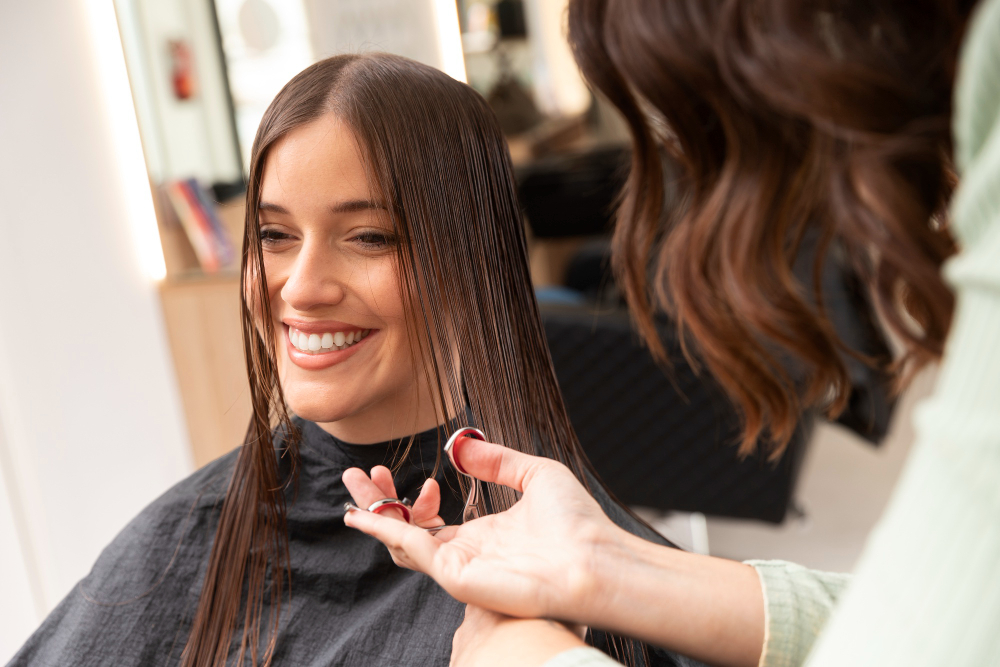
Many people believe trims accelerate hair growth, but this is actually one of the biggest hair care myths.
The Truth: Hair grows from the follicle at about ½ inch per month. Cutting doesn’t speed growth; it just removes split ends, making hair look healthier.
✂️ Our Advice: Trim every 6–8 weeks to maintain health and prevent damage.
Myth 3: You Must Wash Your Hair Every Day
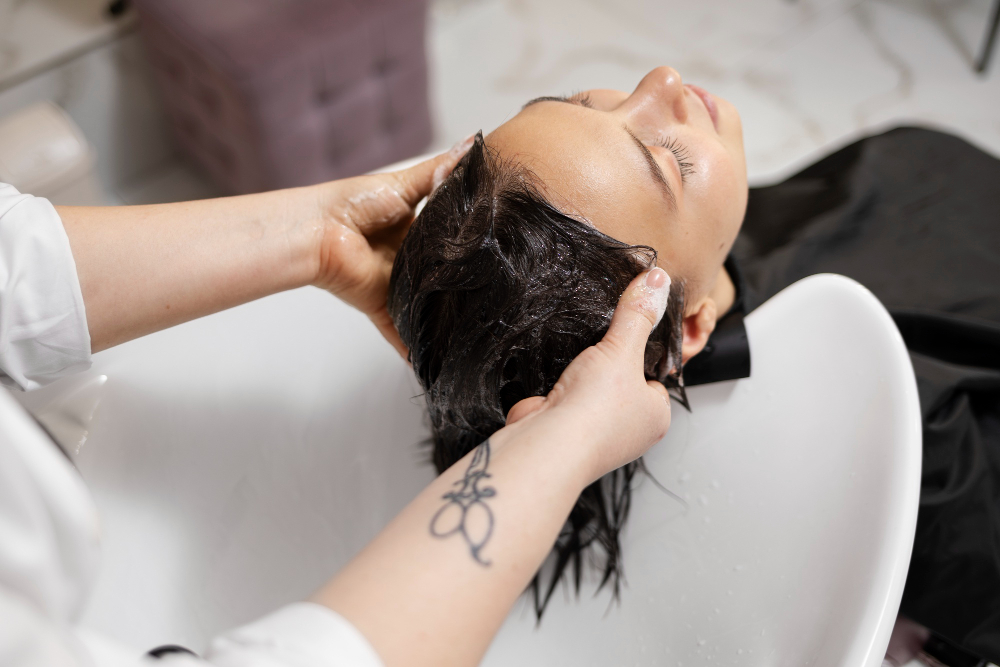
Daily washing may feel clean, but it can harm your scalp.
The Truth: Over-washing strips natural oils that protect and moisturize your scalp, potentially causing dandruff and dryness.
Our Advice: Wash 2–3 times a week for most hair types. Curly or dry hair benefits from less frequent washing.
👉 Start a minimalist hair care routine to simplify your regimen.
Myth 4: Brush 100 Times a Day
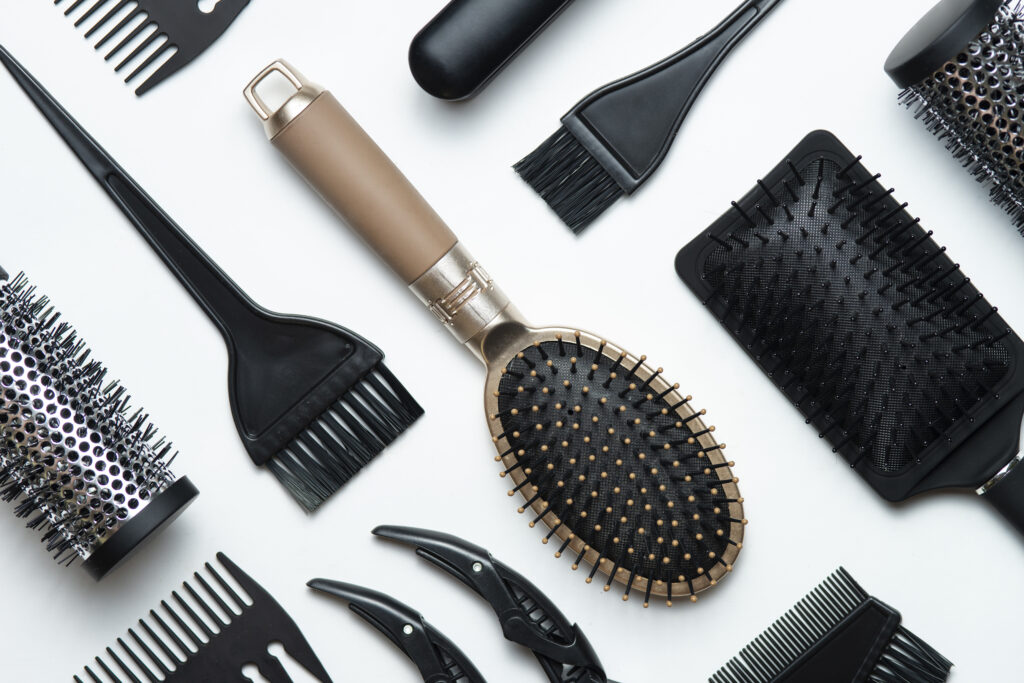
This old-school advice is outdated and is a huge hair care myth.
The Truth: Excessive brushing can lead to breakage, split ends, and scalp irritation.
Our Advice: Brush only to detangle or style. Use wide-tooth combs or soft-bristle brushes, starting from the ends upward.
Myth 5: Heat Styling Damages Hair Permanently

Scared of your straightener or curling iron because of hair care myths making the rounds?
The Truth: Heat can temporarily damage hair, but it is not permanent if used correctly.
Our Advice: Always use a heat protectant and moderate temperature. Tools are fine for styling when used safely.
Myth 6: All Hair Products are The Same
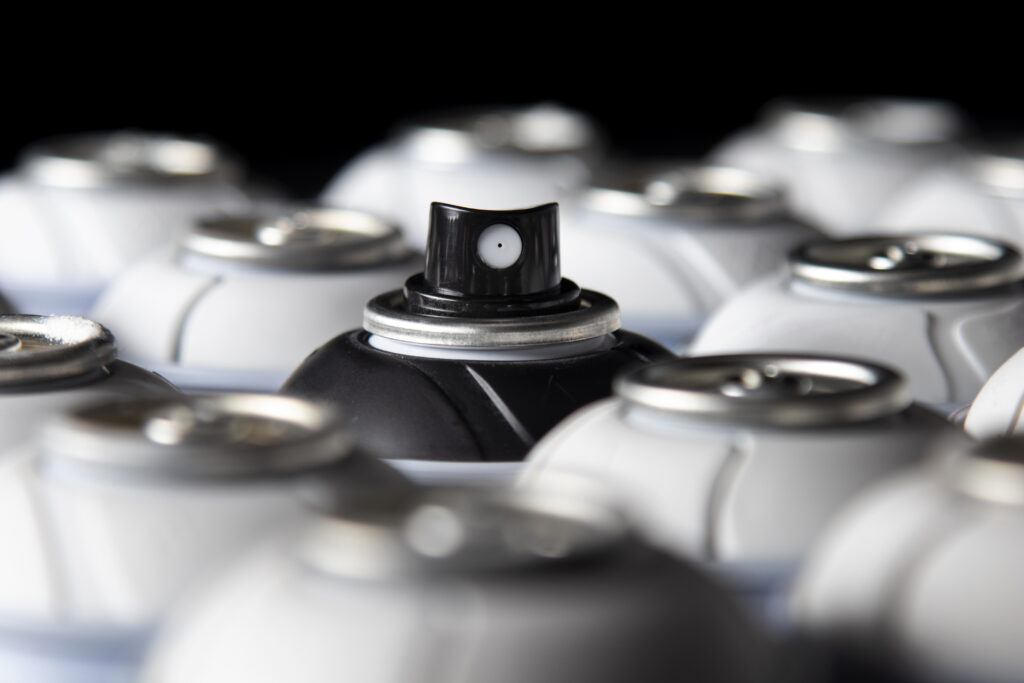
Not all products are created equal, and saying that all hair products are made the same is one of many hair care myths.
The Truth: Hair care depends on your hair type and needs. Using the wrong products can cause buildup or irritation.
Our Advice: Identify your hair type before choosing shampoos, conditioners, or treatments.
Myth 7: Air Drying is Always Better

Air drying is natural, but is it the best?
The Truth: Leaving hair wet too long can cause breakage and frizz.
Our Advice: Combine air drying and blow drying. Air dry until ~80% dry, then finish with a blow dryer on low heat.
💨 Read more: Air drying vs. blow drying.
Myth 8: Dry Scalp Causes Dandruff
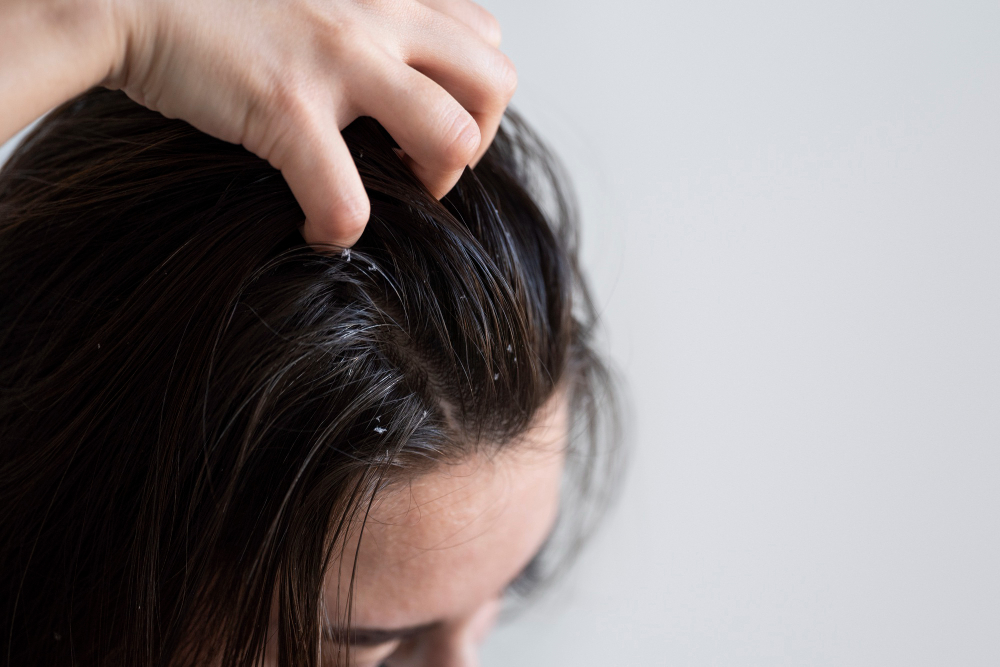
Many confuse dandruff with dry scalp when it comes to hair care myths.
The Truth: Dandruff is caused by Malassezia, a yeast feeding on scalp oils—not dryness.
Our Advice: Use anti-dandruff shampoos with ketoconazole, zinc pyrithione, salicylic acid, or selenium sulfide. Avoid applying oils to the scalp.
🔗 Dandruff vs. dry scalp explained
🔗 Treat oily dandruff effectively
Myth 9: Hair Shedding is Always a Problem
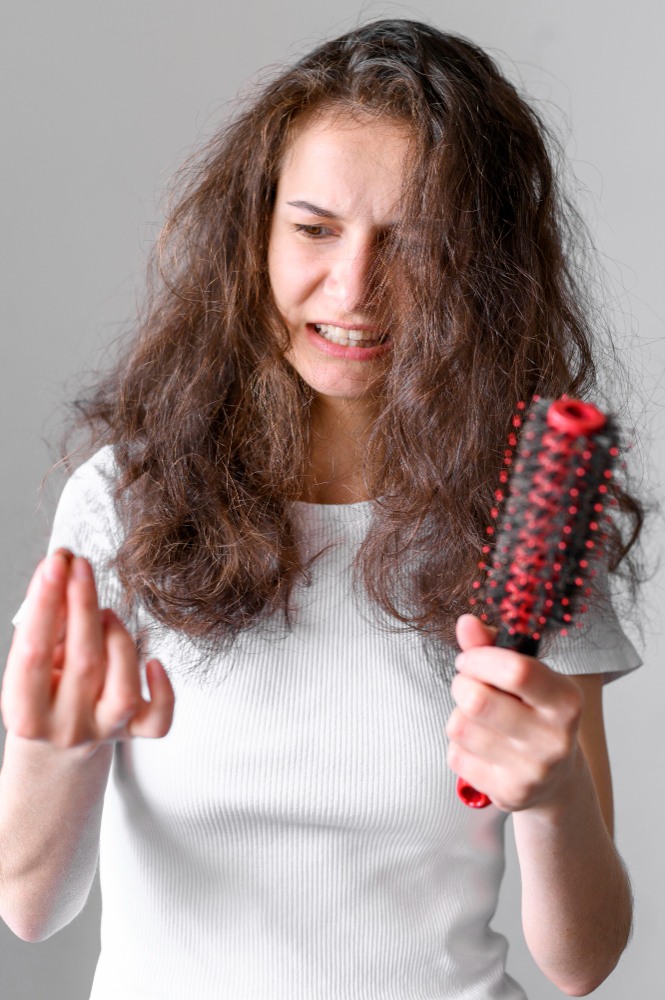
Seeing hair in your brush? Don’t panic, as it is one of many hair care myths.
The Truth: Losing 50–100 hairs daily is normal. Seasonal shedding or scalp flakes can temporarily increase this.
Our Advice: If shedding seems excessive, try scalp exfoliation or consult a specialist.
🔗 Learn about removing scalp buildup.
Myth 10: Coloring Hair is Bad
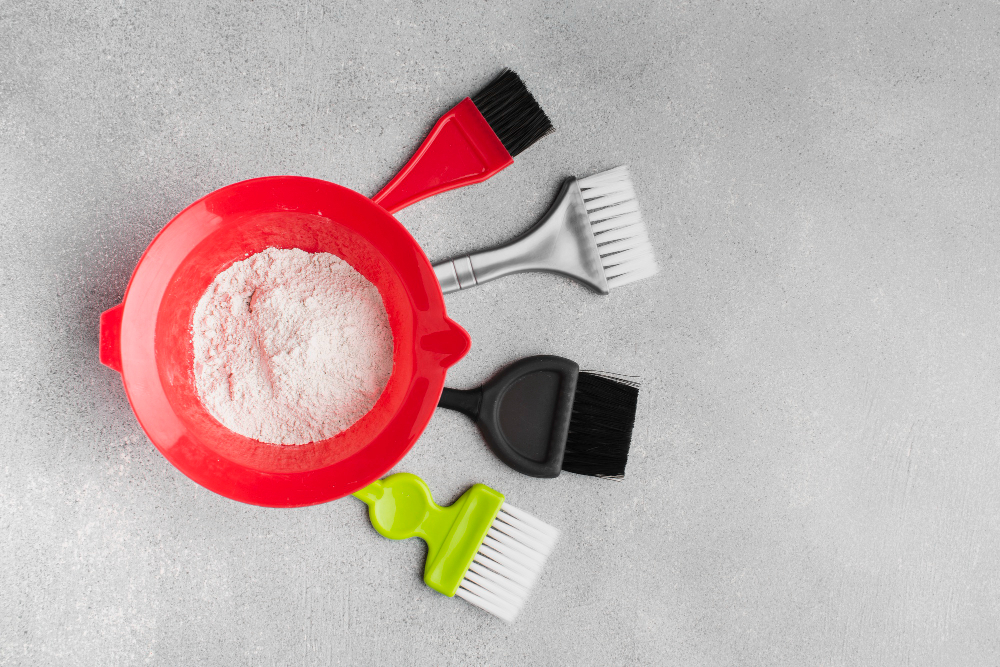
Thinking of adding a new shade?
The Truth: Quality and method matter. Ammonia-free dyes are gentler, while harsh chemicals can lift the cuticle.
Our Advice: Choose professional or gentle home dyes, and always condition properly.
Myth 11: Apple Cider Vinegar Makes Hair Shiny

ACV is trendy, but does it work?
The Truth: ACV is acidic; excessive use can dry hair and damage color-treated strands.
Our Advice: Use sparingly, only on the scalp if needed. Otherwise, stick to sulfate-free shampoos for shine.
Myth 12: Plucking One Grey Hair Makes More Grow Back

Grey hairs can feel frustrating, and many believe pulling one will make two or three grow back.
The Truth: Each hair follicle produces only one strand. Plucking doesn’t “multiply” grey hairs; it just irritates the follicle, which may cause damage over time.
Our Advice: Instead of plucking, consider gentle coloring options or embrace the silver trend. Grey blending is a professional technique we use to keep hair looking natural.
Myth 13: Split Ends Can Be Repaired With Products

Many shampoos and serums advertise “fixing” split ends.
The Truth: While some products can temporarily smooth frayed ends, only a trim stops split ends.
Our Advice: Regular trims every 6–8 weeks are the only way to eliminate split ends. Use nourishing serums in between to keep ends soft and healthy.
Myth 14: Cold Water Makes Hair Shinier

Some swear by a cold rinse for glossy hair.
The Truth: Cold water doesn’t “seal” hair cuticles as often claimed. Shine depends more on your products, treatments, and hair’s health than water temperature.
Our Advice: Rinse with lukewarm water for comfort and follow with a conditioner for true shine.
Myth 15: You Can Train Your Scalp to Produce Less Oil

The “no-poo” movement claims you can “teach” your scalp to stop producing excess oil if you stop shampooing.
The Truth: Sebum production is driven by hormones, genetics, and skin health, not training. Skipping shampoo may actually cause buildup and scalp irritation.
Our Advice: Find a washing schedule that matches your scalp needs, typically 2–3 times per week for balance.
Myth 16: Stress Is the Main Cause of Hair Loss
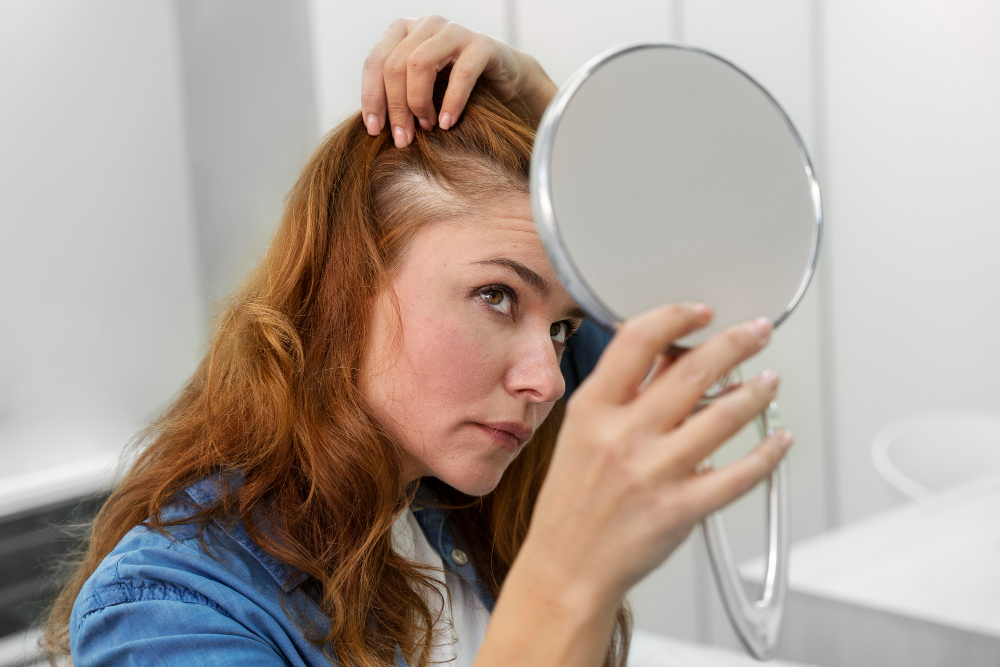
We often hear, “I’m losing hair because I’m stressed.”
The Truth: While stress can cause temporary shedding (telogen effluvium), most long-term hair loss is due to genetics, hormonal changes, or scalp health.
Our Advice: If you notice excessive shedding, consult a professional for a scalp analysis. Treatments like exfoliation, nourishing masks, and proper care can help minimize loss.
Hair Care Myths Debunked
Now that you know the truth behind common hair myths, you can make informed choices for your hair care routine.
💡 Key Tips:
- Choose products suited to your hair type.
- Use heat and styling tools safely.
- Maintain scalp health for better hair growth.
- Regular trims and conditioning matter—regardless of myths.
✨ Ready to start your personalized hair care journey? Book a session with our experts today!
FAQ
How do I differentiate between hair myths and facts?
Rely on scientific studies and expert advice. For example, Harvard Health confirms that trimming does not speed hair growth.
Can hair care practices harm my hair?
Yes, hair care practices such as aggressive brushing, over-washing, or excessive heat styling can harm your hair.
How often should I trim my hair?
Every 6–8 weeks for healthy ends, regardless of hair growth goals.
Does not brushing hair cause dandruff?
No. Dandruff is caused by scalp fungus, not brushing habits.
Can apple cider vinegar lighten my hair naturally?
ACV is mildly acidic but won’t lighten hair significantly; it’s best for scalp health in moderation.

